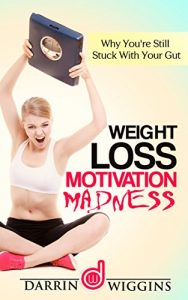Download FREE with Kindle Unlimited!
Are you tired of feeling out of control when it comes to the food you eat? Do you believe you lack the self-control to stop eating based on emotion?
Intuitive & Mindful Eating
Is there a difference between intuitive and mindful eating? In my opinion, no not really. For the purpose of this book, you can look at them as complementing each other or being used interchangeably. Not everyone will agree with that approach, but it is the simplest way of looking at it.
Both are non-diet philosophies that encourage paying attention to what you are eating and the purpose you are eating it for. They also stress the importance of eating judgement free. When you are conscious of why you are eating what you are eating, you tend to not overeat.
With a different mindset towards food you start to:
- Give yourself permission to eat without conditions
- Eat for physical not emotional satiety
- Become fully aware of your true internal hunger and satiety cues
Essentially mindful and intuitive eating help facilitate “normal” eating. Normal eating defined as eating that doesn’t make you feel guilty or worse about yourself but for enjoyment and physical satisfaction.
We are all born with the natural instinct to know when we need to eat and to recognize which foods are bad for us based on how they make our body feel. Unfortunately, many of us have become distracted from this inner voice due to misguided advertising and the enticing taste of processed foods.
Distracted Eaters
How often do you eat dinner in front of the T.V. or while enjoying a game of solitaire while eating lunch at work? This is distracted eating at its finest. When you eat in a distracted state you:
- eat faster
- don’t even remember what you just ate
- eat more snacks
- feel less satisfied by the meal
- tend to eat bigger meals later on
It is not like you don’t realize you are eating food, but you are not conscious of how fast you are eating or when you were full. A driver knows they are driving a car but when they are texting doing it, they really are not in control of what is happening even though they think they are.
Eating should be an experience and when you make it one, you will be able to reconnect with food. Just like the friend on the other end of the phone call can tell you are distracted checking email on your phone, your body can tell when you are mindlessly eating. You can’t fully listen to your friend or your body to hear the important things they are trying to tell you.
Benefits Of Conscious Eating
It will take time and effort to switch your mindset about food, but the work is worth the reward. Just some of the benefits of conscious eating:
- can reduce your body mass index
- lower triglycerides
- increase HDL, (the "good" cholesterol)
- improve self-esteem and overall sense of well-being
- proactive coping skills for people with eating disorders
- regain your pleasure for eating
Anyone can follow this philosophy of eating because it is not some fad diet. This is not based on willpower, self-control or calorie counting. It is about retraining our minds to feed our bodies the way they were designed to be fed.
No food is forbidden, but you will respect your body in a way that doesn’t have you overindulging in unhealthy foods. You can enjoy what you eat because you will trust yourself to eat just what you need.
When you finally give yourself unconditional permission to eat any food, free of self-judgement and without fear of once again being deprived, you start to eat what you need naturally.









